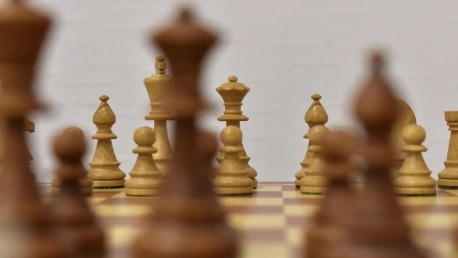After two years of unprecedented emergency brought on by a global pandemic, the world is now at a brink of a new crisis. Ukraine is at the center of the situation, with tens of thousands of Russian troops now spread menacingly along its border. While US-Russia talks continue to look for a diplomatic way of ending or at least easing the tensions, President Joe Biden remains convinced that the Russian President, Vladimir Putin, will ultimately order an invasion of Ukraine. However, he also predicts this action will be met with a quick response from the US and its European allies, as they are determined to protect Ukraine’s sovereignty.
To say that mounting concerns about a new war in Europe are troublesome would be an understatement, and especially more so after a global pandemic. With the world economy still recovering after the healthcare crisis, a military confrontation is now hard to imagine, and its effects could prove catastrophic for many countries around the world. Likewise, they could also spell trouble for two of the most important leaders in the world, President Joe Biden and Russian President Vladimir Putin – who also face mounting political pressures at home. Even so, no diplomatic breakthroughs have been made in Geneva, where the US Secretary of State, Antony Blinken, and Russian Foreign Minister, Sergey Lavrov, recently met in an attempt to defuse the crisis.
More than meets the eye
While the fact that no developments have been made in Geneva is certainly distressing, it is also hardly surprising. Both diplomats represent countries with different if not opposing interests in Ukraine, and both seem keen on maintaining their views on this matter, as well as on the broader stage of Eastern European stability. On one hand, Vladimir Putin is demanding guarantees that the North Atlantic Treaty Organization (NATO) will not spread eastwards to encompass Ukraine, a country that he may see as part of Russia’s own cultural space. On another, President Joe Biden is determined to meet him with a “swift, severe, and united response from the United States and our allies” in the event of an invasion.
To defend their current positions, however, both leaders present the events of the past in a rather different manner. According to the narrative presented by the Russian President, during the dissolution of the Soviet Union, American officials met with their Russian counterparts to discuss the future of Europe. Vladimir Putin says that the Secretary of State, James A. Baker III, promised Mikhail Gorbachev, then leader of the former Soviet Union, that NATO will not expand into Eastern Europe. Mr. Baker, however, views these arguments as “ridiculous” and says no such promises were made. Gorbachev, on the other hand, has repeatedly criticized both Russia and the West and warned that a crisis in Ukraine could rapidly escalate into war.
In a recent interview, Mikhail Gorbachev went as far as to say that America’s desire to “build a new empire” is to blame for the current crisis over NATO and Ukraine.
Both sides of the story
Even though accounts from the ’90s differ, one thing remains certain — no agreement to exclude Eastern European countries from NATO was ever signed. Nor could it have been, as NATO is based on voluntary enrollment by each aspiring country, as well as on approval by each current member. No other country can theoretically prevent Ukraine from joining NATO, and the alliance does currently recognize it as an aspiring member, along with Bosnia and Herzegovina, and Georgia. This, however, seems to have led to a stalemate during the meeting in Geneva, as Russian Foreign Minister, Sergey Lavrov, later said that Russia now expects to quickly receive written responses to its proposals, which include guarantees that Ukraine will not ultimately join NATO.
While both Lavrov and Blinken declared an agreement to continue the talks that were made, concerns are now rising in many countries around the world. Not only is President Biden convinced that Russia will ultimately invade Ukraine, but other countries seem to be also preparing for the worse. The US is already sending lethal and non-lethal weaponry to Ukraine’s military. Estonia, Latvia, and Lithuania are preparing to do the same, while only Germany seems to be blocking their efforts. Unlike most NATO allies, Germany has refused to send military support to Ukraine and has yet to respond to another demand made by the US, of abandoning the use of Nord Stream 2, a Russian-built natural gas pipeline, in the event of an invasion.
When it comes to German feelings, however, more concerning maybe the fact that a German navy chief recently resigned after saying that Russian President Vladimir Putin “probably deserves respect.”
Concerns rising
As the United Kingdom (UK) goes on to warn that Russia is now also plotting to install a pro-Russian leader in Ukraine, the threat of an abrupt invasion in the Eastern European country is also growing. According to The Guardian, Russian ships, tanks, and troops continue to march towards Ukraine as peace talks halt. The coming weeks will probably prove decisive in showing if diplomacy still has a chance of defusing the conflict, and ending the war in Europe before it even starts.









